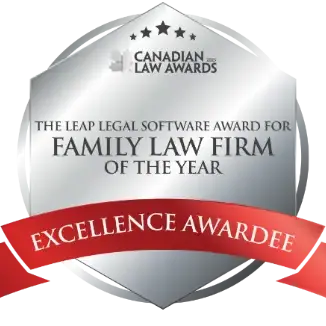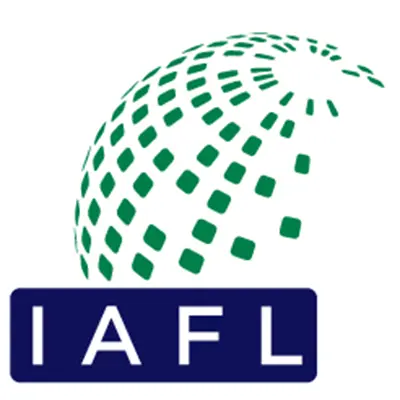Immigration law is vast and always changing. Bring your family home to Canada with MacLean Law.
Reach out to a MacLean Law Immigration Consultant with our WeChat QR code.

How do I sponsor my spouse to come to Canada?
How long am I obligated to support my spouse or child?
What is the BC Nomination program?
How do I apply for a temporary workers program?
Is it possible to become a Canadian citizen if a person has a criminal conviction?
When can a person apply on humanitarian or compassionate grounds?
Can MacLean Law assist with international adoptions?
How does a person withdraw sponsorship when marriage fraud has occurred?
How do I sponsor my spouse to come to Canada?
In Canada, you can sponsor a spouse, same-sex spouse or common-law partner, or a dependent child to immigrate to Canada if you are 18 years of age, a Canadian citizen or a permanent resident of Canada. There are various classes of sponsorship and the person being sponsored must meet all eligibility requirements. Plus, you will have to meet certain obligations as a sponsor.
When you agree to be a sponsor, you must sign an undertaking, promising to give financial support for the basic needs of your spouse or partner and their dependent children. Basic needs include:
- Food, clothing, shelter and other needs for everyday living;
- Dental care, eye care and other health needs that aren’t covered by public health services.
Before signing the agreement, you must make sure the people you sponsor won’t need to ask the government for financial help. If they receive social assistance, you’ll have to pay back what they received during the time you are legally responsible for them.
The MacLean Law immigration lawyers can help you obtain the correct documentation regarding medical, criminal and background checks and apply to the appropriate class.
How long am I obligated to support my spouse or child?
The length of time (also called undertaking) you are obligated to financially support a spouse or a child begins on the day they become a permanent resident. Factors that determine the time length include the age of the person you are sponsoring, their relationship to you, and where you live in Canada.
- For a spouse, common-law partner or conjugal partner, the undertaking is three years;
- For a dependent child (biological or adopted) or child to be adopted in Canada under 22 years of age, the undertaking lasts until 10 years, or until age 25, whichever comes first;
- For a dependent child 22 years of age or older, the undertaking is three years.
Immigration Law specifies sponsors are still financially responsible even if:
- You and your sponsored spouse divorce or separate;
- Your sponsored spouse becomes a Canadian citizen;
- Your financial situation worsens due to debt or job loss;
- You sent a request to withdraw sponsorship, and it was received after the person you sponsored has become a permanent resident.
What is the BC Nomination program?
The province of BC can nominate immigrants for high demand occupations, or nominate high net worth business individuals planning to invest and manage businesses in BC through the BC Provincial Nominee Program (PNP). There are several skill streams a person can apply for under the BC PNP program. They are:
- Skilled worker category;
- Health Care professional category;
- International graduate category;
- International post-graduate category;
- Entry level and semi-skilled category.
The following is required under the skills immigration program. Applicants must:
- Have a confirmed job from a BC employer;
- Register with BC PNP;
- Have two years of full-time work experience in the occupation;
- English or French language proficiency is required for certain classifications;
- Demonstrate the ability to meet income requirements for housing and living expenses.
Our experienced BC Immigration lawyers can help you determine your eligibility and file the appropriate documentation and applications. If you have the skills, education and work experience to contribute to the economy of BC, we can help you through the family stream or the higher education stream.
Obtaining the assistance of a skilled immigration lawyer can help ensure that your application gets approved the first time.
How do I apply for a temporary workers program?
One of the most popular entries to Canada is the Temporary Foreign Workers Program (TFWP). The TFWP allows employers to hire foreign workers to fill temporary labour and skill shortages. Foreign workers both abroad, and already working in Canada can be eligible to apply to the TFWP.
Before foreign workers can be hired for a job in Canada, the employer must first apply for a Labour Market Impact Assessment (LMIA). The LMIA will determine whether any Canadian workers are available to do the job. Temporary foreign workers will then be given a confirmation letter and advised to apply for a work permit. There are work permits for several categories of jobs, including caregivers, agricultural workers and foreign academics.
However, there are other options such as the International Mobility Program. If you are wanting to work in Canada, trust our MacLean Law immigration lawyers to help assess the best path.
Is it possible to become a Canadian citizen if a person has a criminal conviction?
If you wish to work, study or join your family in Canada, but you’ve been denied because of a criminal inadmissibility issue, MacLean Law immigration lawyers can help you navigate the immigration system to gain admittance.
The process may be lengthy and may include required proof of rehabilitation, record suspension or application for a temporary resident permit. Many people have made mistakes which have led to a criminal conviction, but there are successful strategies to obtain Canadian citizenship.
When can a person apply on humanitarian or compassionate grounds?
The Humanitarian and compassionate (H&C) grounds is only granted to applicants in exceptional circumstances. Applications are assessed on a case by case basis, with the following circumstances considered:
- How settled the person is in Canada;
- General family ties to Canada;
- The best interests of any children involved; and
- What could happen to the person if the application is denied.
Potential applicants take note; you may only ask for humanitarian and compassionate grounds if you’re applying for permanent resident status in Canada, or for a permanent resident visa abroad. You cannot apply for humanitarian and compassionate grounds if you have a pending refugee claim, or if you have more than one application at the same time. If you wish to apply, you must withdraw your refugee claim before your Immigration and Refugee Board of Canada hearing. Temporary resident applications will not be considered.
Can MacLean Law assist with international adoptions?
If you’re planning to adopt a child who has citizenship in another country, the adoption process must comply with the laws of both Canada and the sending country.
If you’re adopting a child to live in British Columbia, you must deal with the provincial authority for the adoption and then follow the immigration and citizenship process.
Adoption can be very emotional, but having a solid BC immigration lawyer from MacLean Law on your side can help ensure your new loved one makes it to Canada safely with all correct legalities in order.
How does a person withdraw sponsorship when marriage fraud has occurred?
Unfortunately, many people have been the victims of marriage fraud. This happens when a Canadian citizen has been duped into marriage in order for another person to obtain entry to Canada. The Canadian government has strict requirements that can have a long-standing effect on your personal and financial situation.
You can withdraw your sponsorship application at any time before your spouse becomes a permanent resident of Canada. If your sponsored spouse becomes a permanent resident before your request is received, you can’t withdraw the application. You’ll have to respect your sponsorship obligations.
If you have been a victim of marriage fraud and need help to withdraw sponsorship, call our MacLean Law immigration lawyers as soon as possible on 1 877 602 9900.











